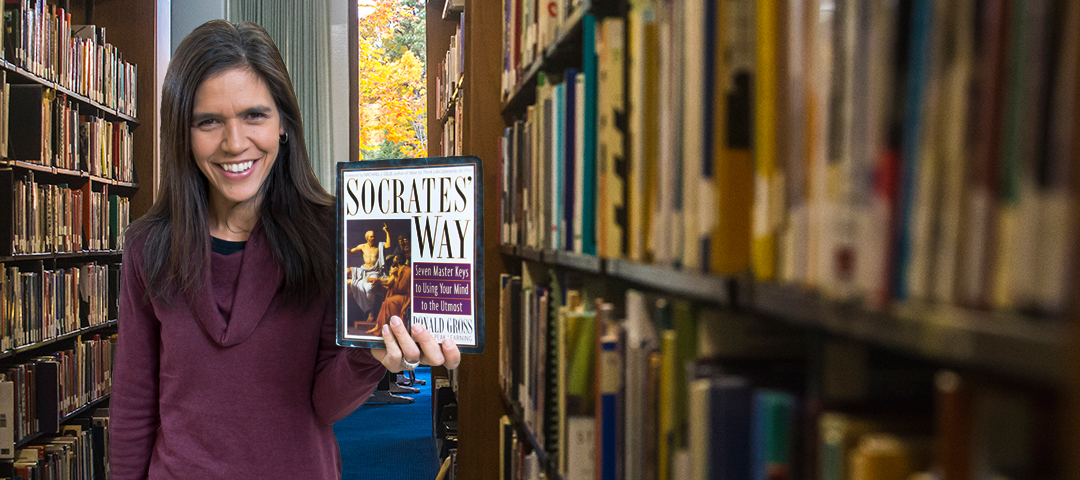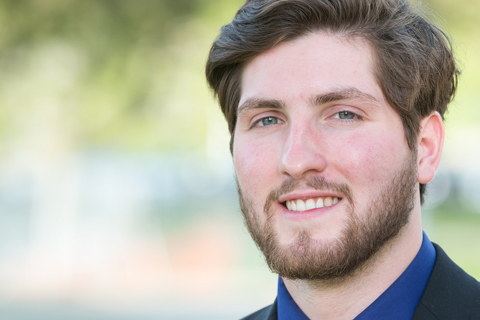
If you are a deep thinker and are seeking a broad education that can be the foundation for careers in law, education, public service, religion, business, or more, a degree in Liberal Arts: Philosophy is for you.
Why Choose NECC?
By completing this program, you will experience a wide range of ideas and viewpoints through a variety of classes that emphasize critical reading, critical thinking, research, and communications. With this program, you can:
- Improve your ability to reason and understand complex issues
- Learn critical thinking skills to solve challenging problems
- Develop your communication skills
- Utilize NECC resources to help you succeed, including computer labs, tutoring centers, a career and academic advising center, and participate in career workshops.
Because of NECC

Upon graduation from NECC with a degree in Liberal Arts: Philosophy, you will have acquired a strong foundation for transferring to a four-year school, and can pursue many career paths. Upon completion of the program, you can:
- Take advantage of MassTransfer Pathways and other transfer agreements to earn your bachelor’s degree, while saving thousands of dollars on the cost of your degree
- Prepare for a career in fields such as law, education, public service, business, politics, and more
Program Pathway
A pathway is the most efficient sequence of courses semester-to-semester recommended for students to complete their degree. View the suggested pathway for the Liberal Arts Philosophy Associate Degree.
Learning Outcomes
Student Learning Outcomes - Liberal Arts: Philosophy
Student Learning Outcomes – Liberal Arts: Philosophy
- Produce clear and well organized writing that responds appropriately to an assignment using standard American English
- Produce clear and well organized oral reports that respond appropriately to an assignment using standard American English
- Employ basic philosophical vocabulary
- Clearly articulates an understanding of, and insights into, own cultural rules and biases
- Demonstrates sophisticated understanding of the complexity of elements important to members of another culture in relation to its values, norms, and social processes.
- Evaluate information and its sources critically
- Use information effectively to accomplish a specific purpose
- Access and use information legally and ethically
- Use numeric data when appropriate to support arguments. Able to present data in context.
- Assess credibility of source, interpret the numeric evidence whether presented in data or table format, and can distinguish causation from correlation
- Students will understand the mutual influences between science and philosophy over the past 300 years
- Students will appreciate the influence that technology has had on our understanding of human nature and its role in life
- Demonstrate creativity (thinking and acting in new, different, and imaginative ways)
- Differentiate the major areas of philosophy, such as philosophy of human nature, ethics, social and political philosophy, metaphysics, epistemology, and logic
- Analyze the positions of traditionally important philosophers, from Plato onwards, and explain why they are deemed worthy of attention today
- Examine significant philosophical questions–such as “what is reality?” “how should I live?” or “what can I know?”–and developments in their treatment throughout the history of philosophy
- Assess the strengths and weaknesses of positions and methods–such as idealism or realism, egoism or altruism–that arose in response to principal philosophical questions
- Gains knowledge of how religion impacts believers’ values, world views, ethics, politics, traditions and culture
- Students will appreciate the practical value of philosophy in their own lives and in the world around them (i.e. how to make rational choices in life, and how to better search for happiness)
Courses and Requirements
Skip Required Courses and Program Notes
Contact
Professor of Philosophy
Professor of Philosophy
Meredith Gunning, Ph.D.
Professor of Philosophy
Phone: 978-556-3539
Email: mgunning@necc.mass.edu





